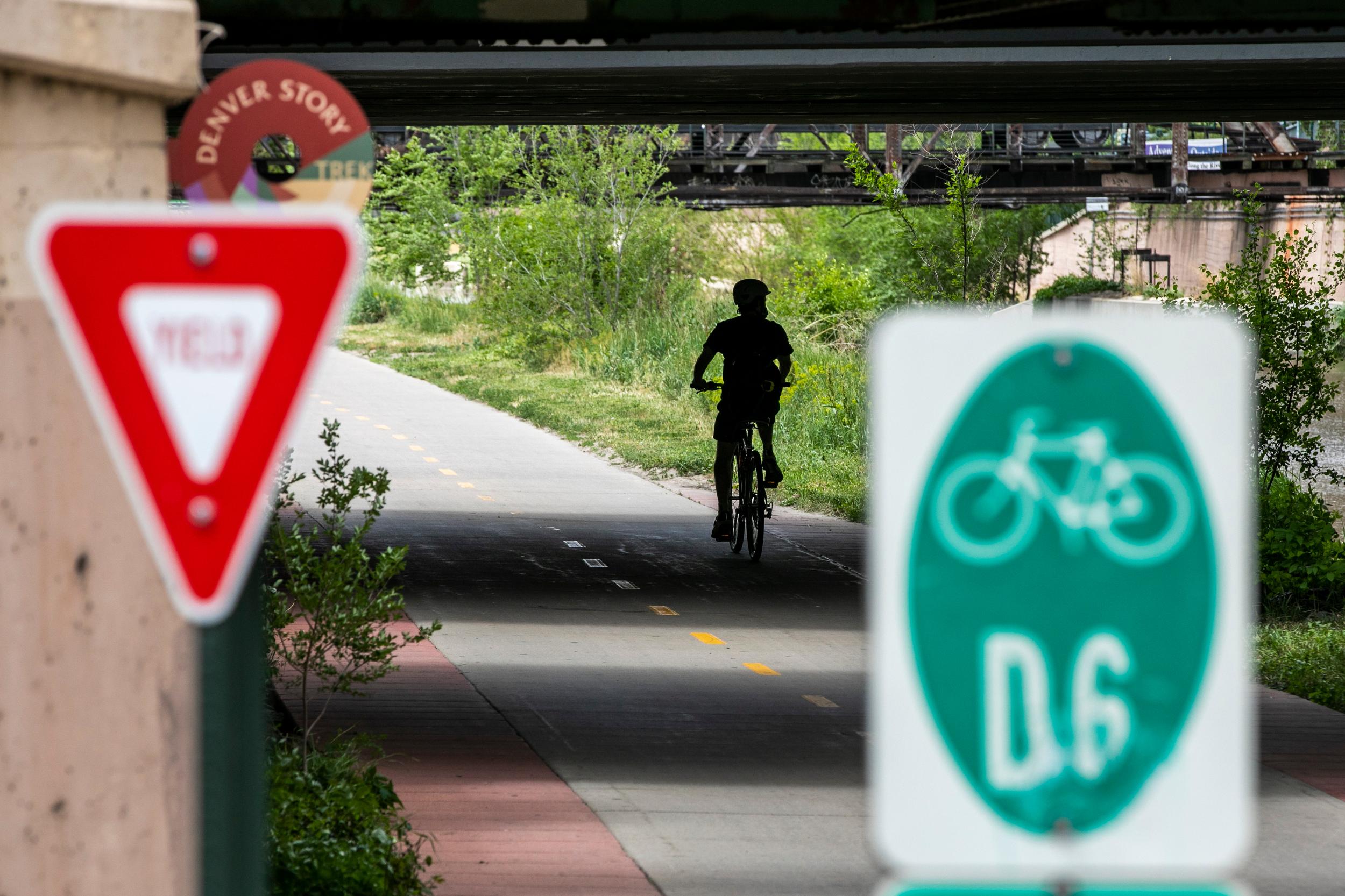
A significant investment in climate-friendly transportation infrastructure — like bicycle paths, better sidewalks and increased transit service — combined with a simultaneous shift away from emissions-generating highway expansion projects could result in some $40 billion in economic benefits, a new state analysis suggests.
Colorado's Transportation Commission is considering a proposed rule that would require the state Department of Transportation and the state's five metropolitan planning organizations to consider, measure and potentially offset the harmful climate effects of transportation projects.
A new cost-benefit analysis, published earlier this week, of that proposal attempts to quantify its potential effect on air pollution, road safety, traffic delays and more. The analysis projects that adopting the rule would likely lead to people driving less, resulting in fewer costly crashes and repairs.
"... I think it makes a very powerful case for big net benefits," Will Toor, the state's top climate official, tweeted of the analysis.
The proposed rule would require that state and local governments offset polluting road expansion projects — if they exceed a given emissions budget — with cleaner alternatives. That could result in a 28 percent shift in funding — roughly $6.7 billion by 2050 — toward cleaner projects, the analysis found.
The Transportation Commission is scheduled to vote on the rule at its November meeting. CDOT is hosting several public hearings on the rule before then.









